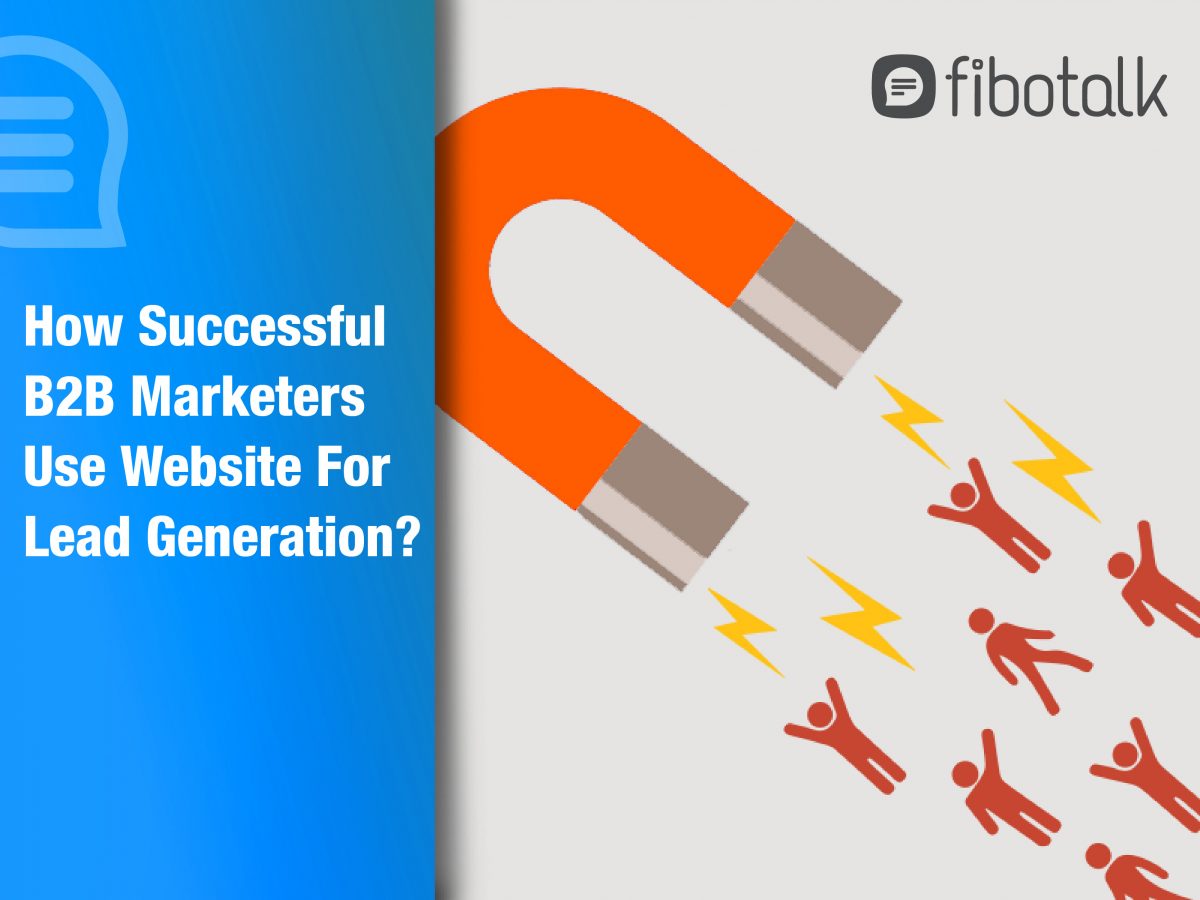
Do you wonder how fellow marketers are using their website for B2B lead generation?
Need some inspiration to turn your website into a lead generating tool?
Chances are that you’re already aware of these techniques and strategies. Search engine optimizations, email marketing, inbound marketing – heard of them all, right? Maybe you have employed some or all of them.
But did you know that the website is at the heart of all digital marketing strategies? To get desired results from these marketing initiatives, the website must be equipped with features supporting lead generation.
In this article, we’ll talk about the how website fits in online marketing strategies which B2B marketers are successfully using for generating business leads.
But first, you need to understand how the role of website has changed in B2B marketing.
A decade ago you could have impressed your prospects by beefing up your about us page and using flattering adjectives to describe your facility, infrastructure or even founders (nostalgia!). The fact is, this approach doesn’t work anymore. And there is an interesting shift in the way prospects esp. in B2B space have started interacting with business websites.
Modern B2B marketers understand that customers’ expectations have changed. And so has the role of website in lead generation.
Instead of relying on the sales team’s assistance, potential customers do their bit of research now. They guide themselves through the sales process about 70% of the time.
Marketers are now using website as an engaging lead generating tool, targeting different phases of the buying cycle to develop and nurture prospects.
Caveat: We’ve been reading about and sold the idea of website as a 24/7 salesman who never sleeps. That’s still true by the way! Your website is still your salesperson at work, but the nature interaction has changed.
Smart B2B marketers use multiple channels and tactics to generate leads. Here are the three most successful techniques used for B2B lead generation and the role of website in each of them:
Wish to target your potential customer directly and personally?
Email marketing is still one of the most powerful channels for B2B as well as B2C lead generation.
But the engagement doesn’t stop at the inbox level. The role of website here is to continue the email conversation with the potential lead and keep them engaged and ultimately convert the visitor into a lead.
There’s another set of marketers who believe in the power of helpful content to generate leads.
If you attract qualified prospects to your products or services via some awesome helpful content, then voila! You are already using inbound marketing techniques to generate leads for your business. It’s surprising how many B2B marketers still don’t know what inbound marketing is.
Website is the hub of all inbound marketing activities.
That’s because you are attracting customers and demanding their attention to your website through relevant content.
Once the prospect arrive, you engage with them using conversational tools like email and live chat software for website and by promising continued value. Read more about online chat for business and how it can help you outsell your competition.
B2B marketers employing SEO techniques attempt to capture leads when their prospects are actively searching for the related services or products in the search engine like Google, etc. By ranking their website high in search engine results, they generate (qualified) traffic for the website.
Once on website, the website requires further optimization to increase lead generation.
Businesses using live chat would agree it is an essential tool in not only providing exceptional customer service but also in capturing leads and improving sales conversion. According to Neil Patel, live chat can increase your lead generation rate by 45%. Read more about how to garner more leads from website using live chat.
Conclusion
Marketers don’t use website as an online marketing brochure anymore to show off their work and hoping a customer does business. They have realized that such websites are less about customers and more about the company.
If your marketing team is already using these marketing techniques, it doesn’t imply that your website is optimized for lead generation. To maximize the results, optimize your site according to the role it plays in the marketing strategy as briefly described in this post.

